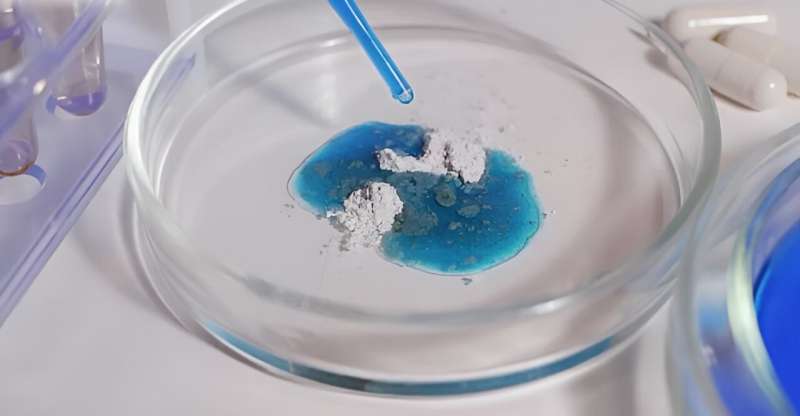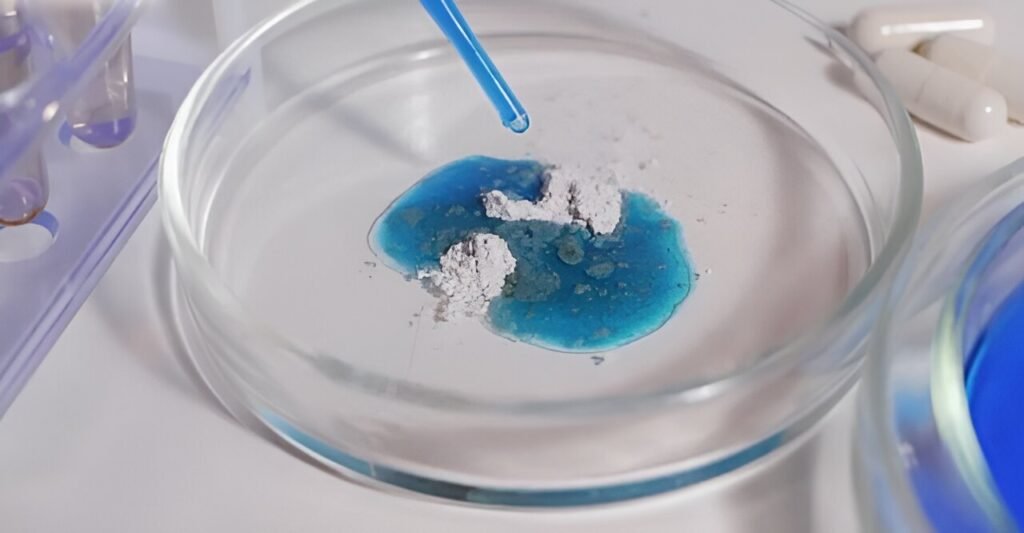
Credit: ForCell
New technologies aim to take gene therapy a step further, making the treatment more widely available, at lower cost, and with improved patient outcomes.
Dr Rasha Rezk and Professor David Kent from the Centre for Blood Research at York University have developed a technique that uses mechanical force to deliver genetic modification tools into cells in the body, and they are now scaling this technology towards clinical applications through their new company, Forsell.
The new technology can open cells by compression, in a manner similar to the action of a plunger in a French press. This action allows cells to be temporarily opened to transfer genetic information without damaging or altering the cells, a risk with current methods.
Currently, the majority of gene therapies are performed by removing some cells from the body, modifying the genetic material using virus-based tools, and then returning the cells to the patient. Such treatments already exist for a variety of inherited diseases, such as sickle cell disease and severe combined immunodeficiency (SCID), where gene correction can restore cellular function.
Scientists use viruses as part of gene therapy because they have the ability to recognize cells and transfer genetic information, but they can also activate the body’s immune system and pose potential cancer risks by integrating into the genome.
“While there have been great advances in the cell biology of gene therapy, the engineering side remains stuck on decades-old technology and cost remains a major issue, often running at around £1 million per dose,” Dr Rezk said.
“Our new company offers the potential to harness machine power to improve delivery and significantly reduce costs while eliminating the virus once and for all.”
Possibility of spin-out
Dr. Rezk presented his new technology at Toronto’s Creative Destruction Lab (CDL), which provides startups with business development support and funding from larger corporations. He was also subsequently awarded a Royal Academy of Engineering Enterprise Fellowship, a 12-month program that helps researchers turn their engineering innovations into spin-out companies.
“We want to improve clinical outcomes while simultaneously reducing costs,” said Dr. Rezk. “Mechanically opening the cells allows us to do that routinely without changing the identity of the cells.”
“Our technology offers an unprecedented opportunity to deliver genetic modification tools in a safer and more economical way. The application of forces to cells can be tuned, which also makes it possible to accommodate a wide range of cell types and drugs.”
Scale up
The research team has demonstrated that the technique works on small numbers of cells in the laboratory, and the next stage of work is to scale it up to process millions of cells using the same method, making it more affordable for healthcare services and increasing the success rate of gene therapy for patients.
For more information about ForCell, please visit their website.
Courtesy of York University
Quote: New technology could make gene therapy available to more patients at lower cost (July 12, 2024) Retrieved July 12, 2024 from https://phys.org/news/2024-07-technology-gene-therapies-patients.html
This document is subject to copyright. It may not be reproduced without written permission, except for fair dealing for the purposes of personal study or research. The content is provided for informational purposes only.

